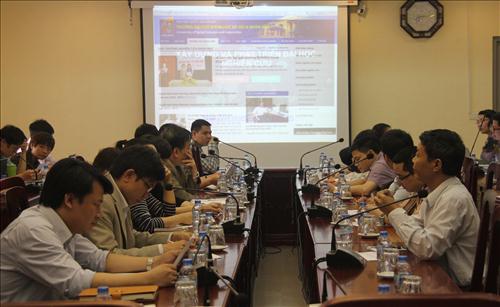
Social sciences and humanities account for 28% of Scopus publications.
According to Dr. Nghiem Xuan Huy (Deputy Head of the Science and Technology Department, Vietnam National University, Hanoi), out of the total number of scientific publications in the Scopus system from 2010-2015, publications in the field of Social Sciences and Humanities alone accounted for 28%. Also in the Scopus system, there are currently about 3,198 sources publishing works in the field of Humanities, 5,766 sources publishing works in the field of Social Sciences, and 1,256 sources publishing works in the field of Psychology. Thus, in terms of both publication sources and the popularity of the number of articles, Social Sciences and Humanities in the Scopus system are not inferior to any other science (Source: SCIMAGO).
In the ISI system – considered even more rigorous than Scopus – during the period 2010-2015, 246,718 articles were published in the field of Social Sciences and Humanities, of which 134,150 articles (54%) were in the Social Sciences field and 112,568 articles (46%) were in the Humanities field.
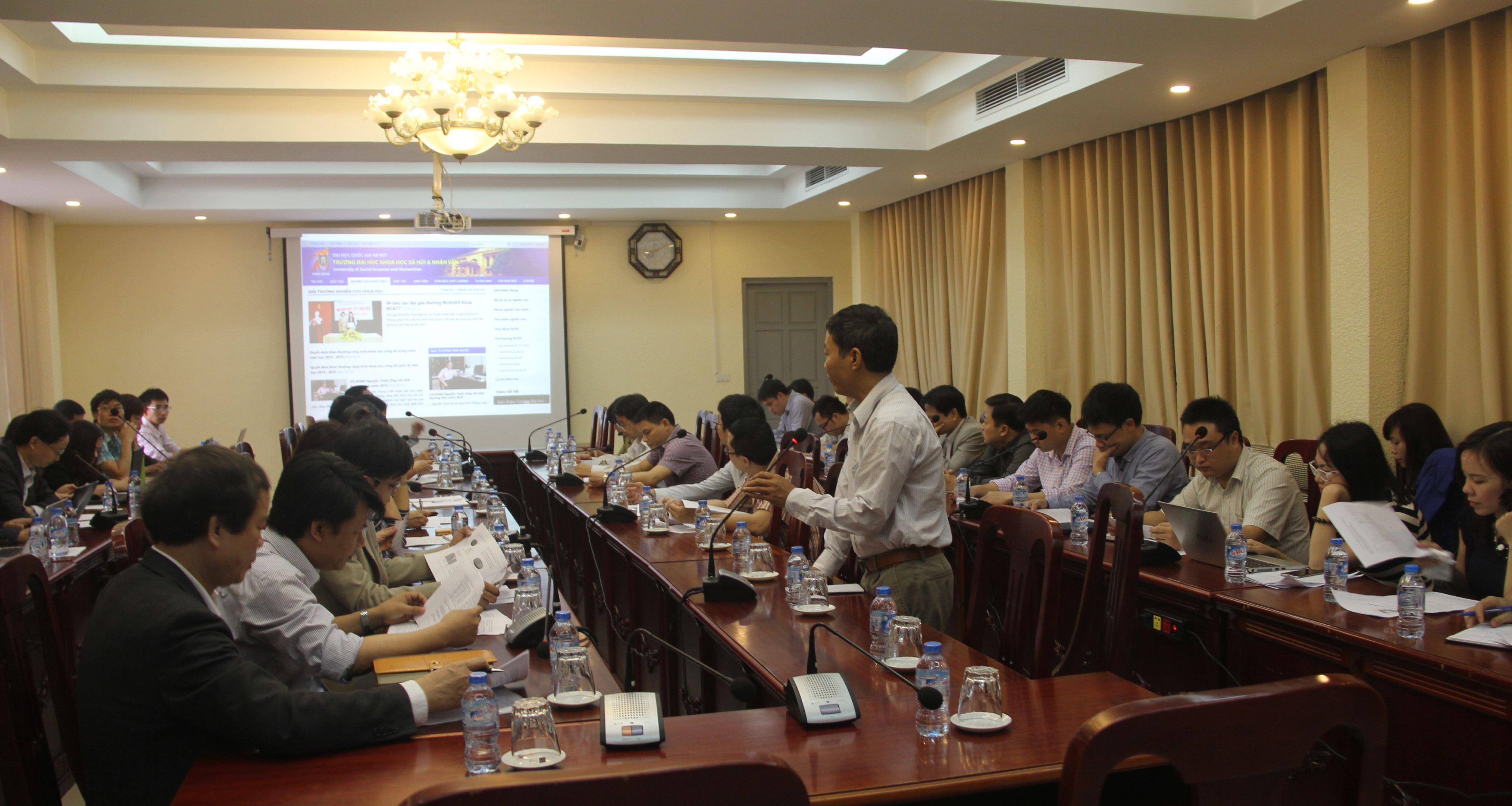
Overview of the seminar/Photo: Tran Minh
This demonstrates that the field of social sciences and humanities receives a great deal of attention worldwide. Social sciences and humanities are by no means "inferior," and in fact, there are quite a few sources of publications that researchers can access and choose to publish their works.
Also on Scopus during the period 2010-2015, Vietnam's international publications in the social sciences and humanities totaled 1,756 articles, averaging 320 articles per year, accounting for approximately 0.07% of the world's total social sciences and humanities publications. This is a modest percentage. Meanwhile, the corresponding publication figures for Southeast Asia were 52,167 articles, accounting for about 2% of the world's social sciences and humanities publications, averaging 9,485 articles per year.
On the ISI system, Vietnam published 89 articles, accounting for 0.04% of the total publications on ISI (during the period 2010-2015).
Vietnam's international publications in the social sciences and humanities have mainly focused on linguistics, anthropology, economics and finance, and management science. The field of psychology has only paid attention to applied psychology and social psychology.
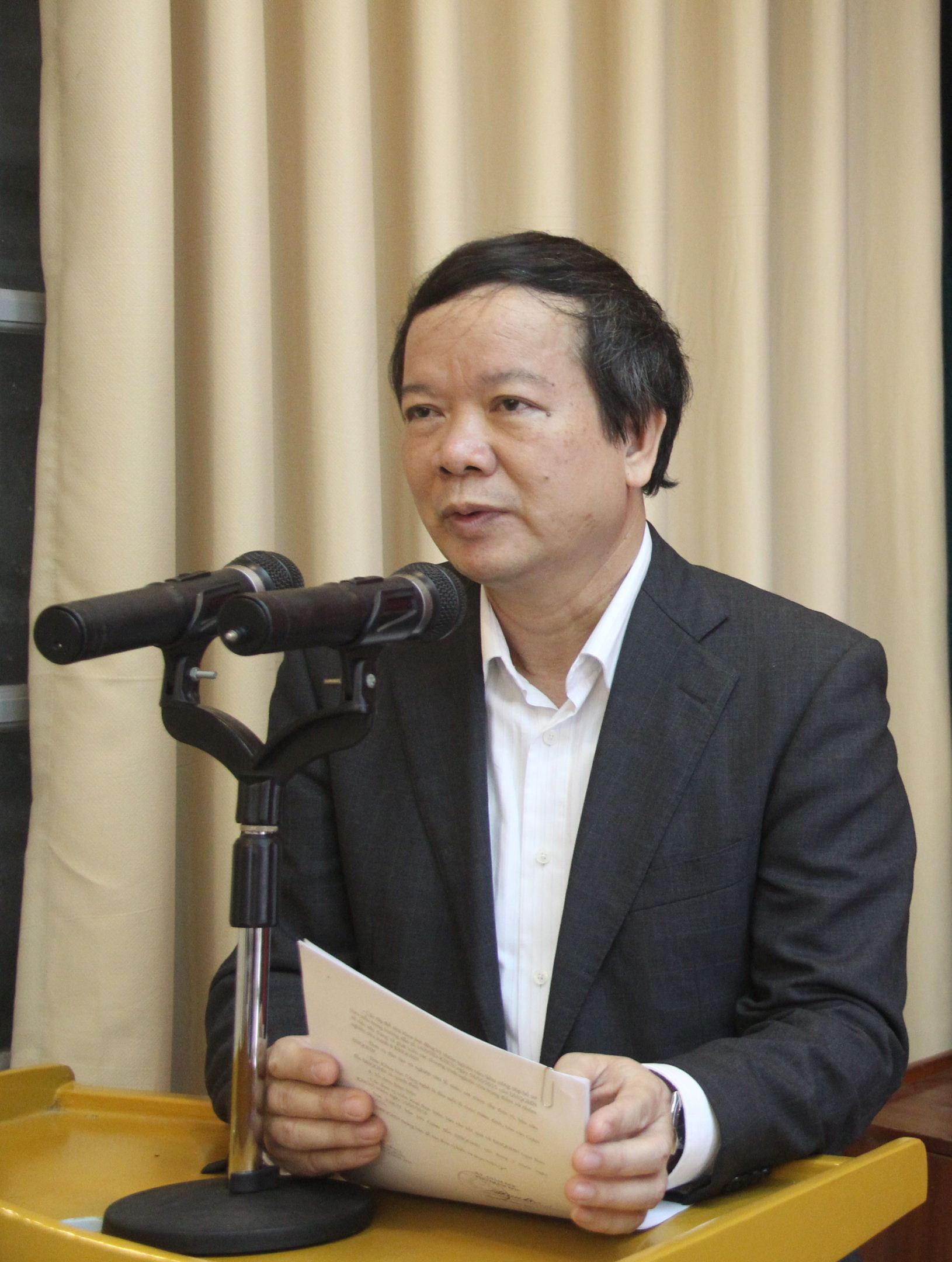
Professor Dr. Nguyen Van Kim - Secretary of the Party Committee, Vice Rector of the University, delivered a speech at the seminar.
Of the 24 fields of study recognized in both ISI and Scopus, Vietnam has only integrated a very limited number. Thus, Vietnam's capacity for international integration in the social sciences and humanities remains modest, considering both the number of fields with publications and the volume of articles published in these two systems, and lags significantly behind other countries in the region.
Dr. Nghiem Xuan Huy commented that some areas where the University of Social Sciences and Humanities, Vietnam National University, Hanoi has strengths, such as Psychology, Anthropology, Linguistics, Communication, Culture, History, etc., are also areas that the world is focusing on. This is also an opportunity for the University to leverage its strengths and integrate with the world.
Practical policies are needed.
Opinions indicate that major research centers in the social sciences and humanities in Vietnam lack practical strategies and plans to implement and promote international publications. Therefore, further in-depth research on development trends in the social sciences and humanities is necessary to develop research strategies that are appropriate for high integration capabilities.
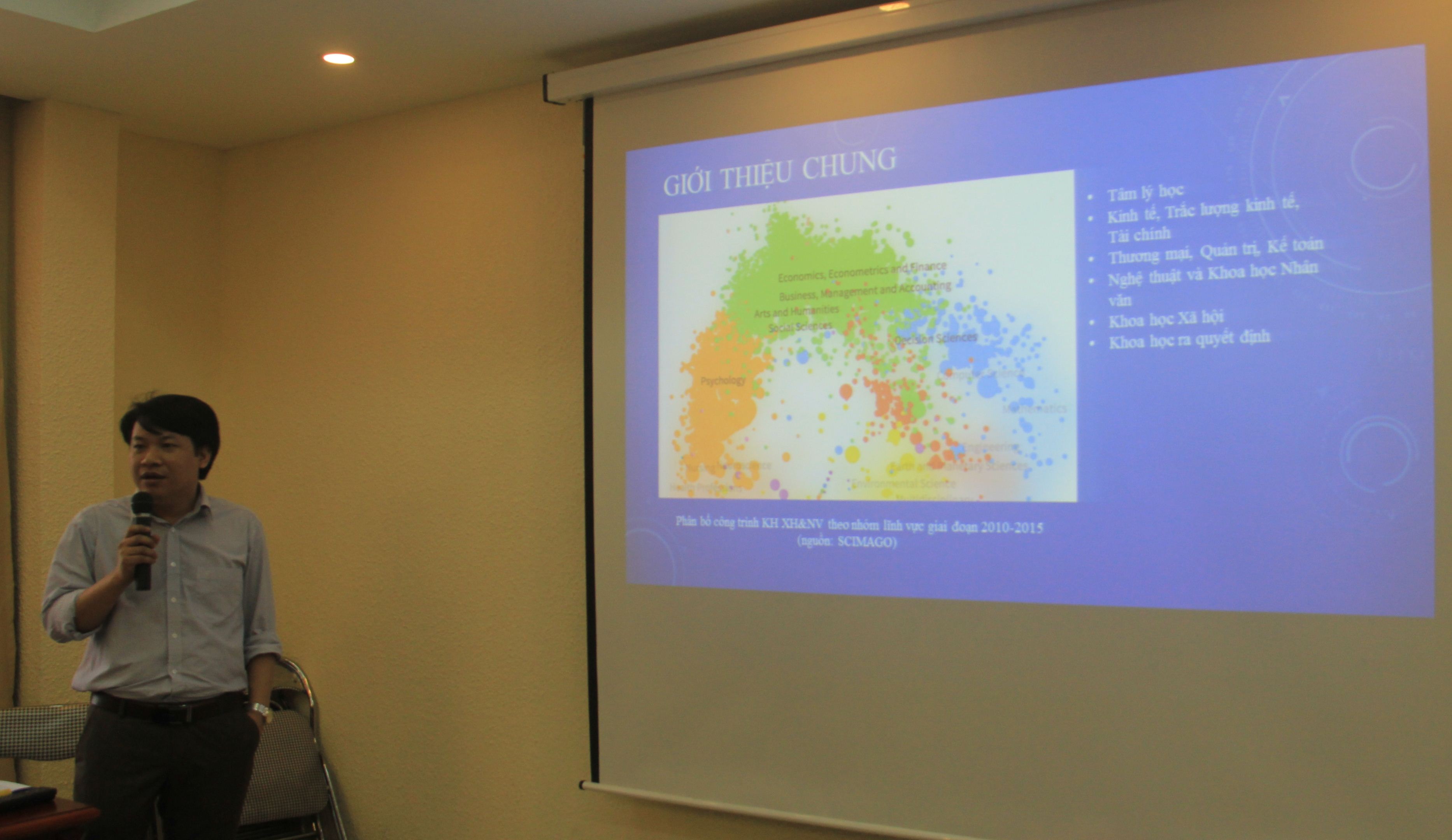
Dr. Nghiem Xuan Huy (Deputy Head of the Science and Technology Committee, Vietnam National University, Hanoi) presented a report on international publications in the field of social sciences and humanities: international trends and Vietnamese practice.
According to Associate Professor Dr. Nguyen Van Chinh (Department of Anthropology), two-thirds of Malaysia and Singapore's international publications are by foreign scholars from the US, Europe, and other Southeast Asian countries. Countries in the region invest heavily in inviting foreign scholars to collaborate, and these collaborations often require international publications to be under the name of Malaysia or Singapore. Therefore, their large number of international publications is largely due to significant international cooperation.
Therefore, if Vietnam does not participate more actively in international collaborative research programs and international conferences, it will be very difficult to promote international publication or distribution, even if the research is excellent, innovative, and unique - Associate Professor Dr. Nguyen Van Chinh stated.
Associate Professor Dr. Nguyen Van Chinh argues that another limitation in Vietnam is that although there are many research topics, the publication efficiency is low because there are no binding regulations requiring international publications, especially for large-scale projects. Currently, in Vietnam, most researchers are interested in publishing monographs or articles in domestic scientific journals because they are scored. International collaborative projects are completely excluded from the scoring system for academic titles and degrees. This differs from universities abroad, which have scoring systems based on international publications to determine academic titles, degrees, and salary increases. For example, at the University of Singapore, having three publications in the ISI system results in a one-level salary increase.
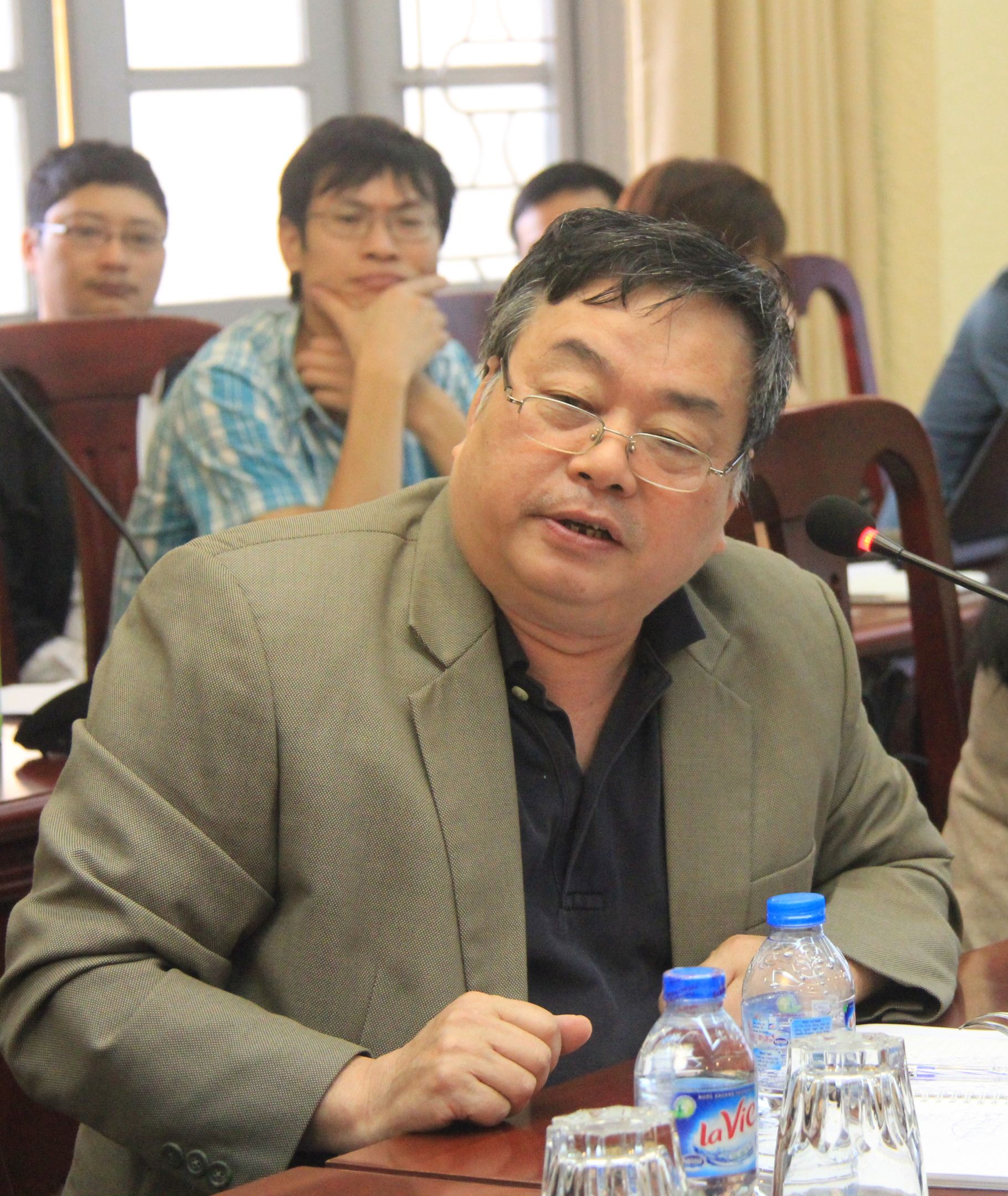
Associate Professor Dr. Nguyen Van Chinh speaks at the seminar.
According to Dr. Pham Hong Long (Faculty of Tourism Studies), practical and sustainable policies are needed to support and encourage scientists with achievements in international publications, rather than just the current incentive-based rewards. Every year, universities in Vietnam should organize field research trips and connect with scholars from other countries to conduct investigations and produce joint research results.
Dr. Nguyen Truong Giang (Department of Anthropology) suggested: Young researchers should be given regular access to high-ranking specialized journals to keep abreast of trends and concerns in the global scientific community. Faculty members should be given sufficient time for research. The university should organize more talks by experts to share their experiences on international publication.
Associate Professor Trinh Anh Tung suggested that, in addition to scientific journals in English, we could consider publishing internationally in journals using another language to increase opportunities.
Associate Professor Dr. Nguyen Vu Hao (Faculty of Philosophy) suggested: From a management perspective, the university must ensure that all faculty members consider international publications as an important measure of research and teaching activities. The university should have regulations for granting early salary increases to lecturers with international publications and establish a publishing service center to support translation, searching, and evaluation of scientific articles for international publication.
Dr. Vo Minh Vu (Faculty of Oriental Studies) suggested that, in order for the world to know more about the scientific community in Vietnam, Vietnamese scientists need to proactively participate in international scientific activities such as representing the country in building a research database system, registering and organizing international conferences, etc. Instead of focusing too much on the ISI or Scopus systems, we can focus on narrower environments such as Japan and China; create collaborative links between faculties and partners in the region; provide individual funding for research depending on the topic and project; and strengthen translation activities in science.
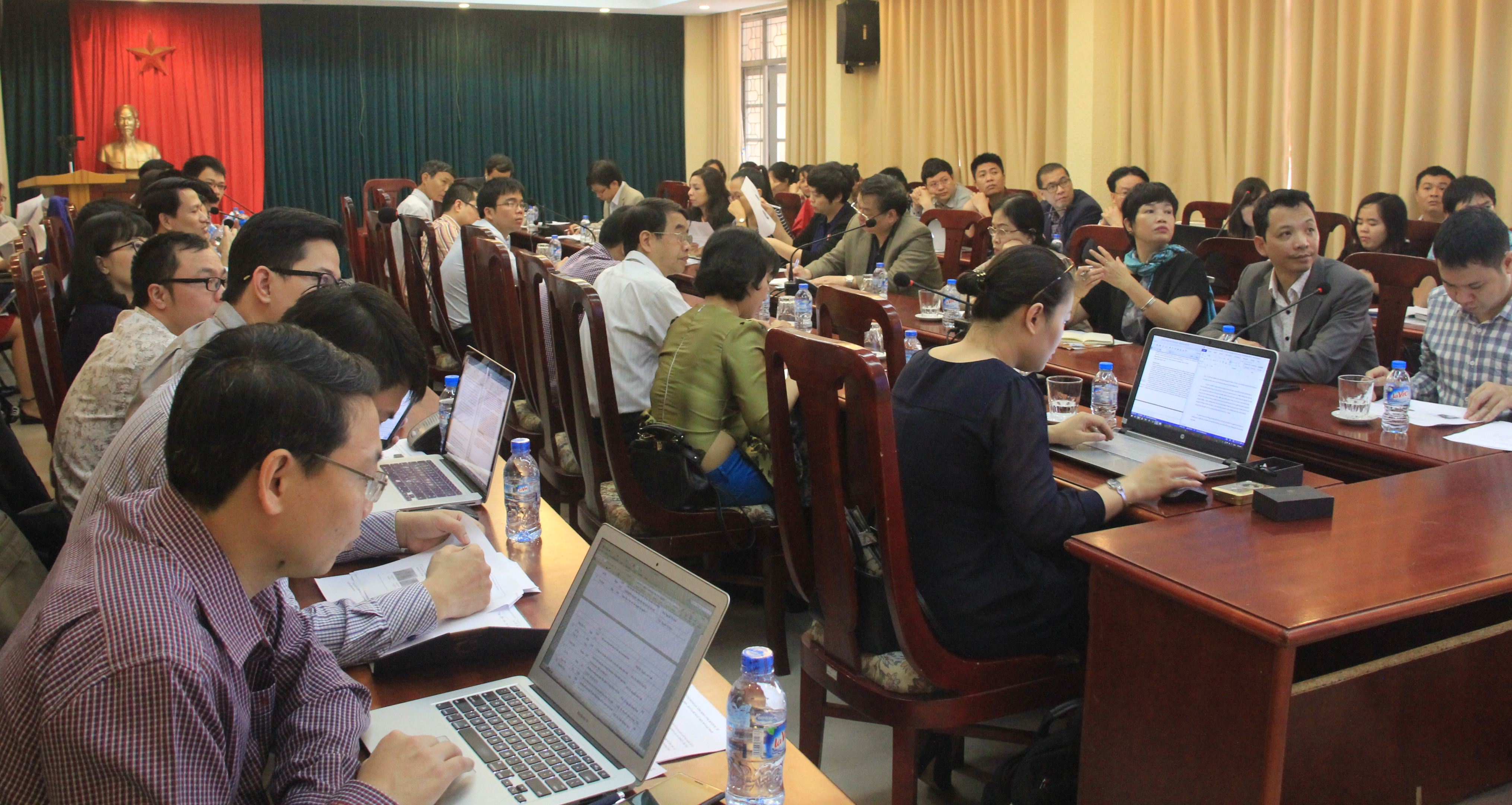
Appreciating the contributions of the faculty members at the seminar, Professor Nguyen Van Kim (Party Secretary, Vice Rector of the University) affirmed: The international publications of the University's scientific staff in the past few years have made significant progress, but are still not commensurate with the potential. The University has integrated the content and requirements for international publications into the annual academic plan, the University's development orientations, and the University's orientation for developing and building a research university. The University has also implemented regulations and reward criteria for scientific works published in international journals, as well as providing support for lecturers and scientists to attend international conferences. Alongside maintaining the existing support mechanisms, the University will continue to prioritize pioneering staff who are willing to invest significant time and effort in international publications in influential journals or participate in the internationalization of teaching. Other proposals regarding the establishment of strong research groups, international research collaboration groups, and support for translation according to international academic standards will be considered by the University for implementation in the near future.
Author:Thanh Ha
Newer news
Older news